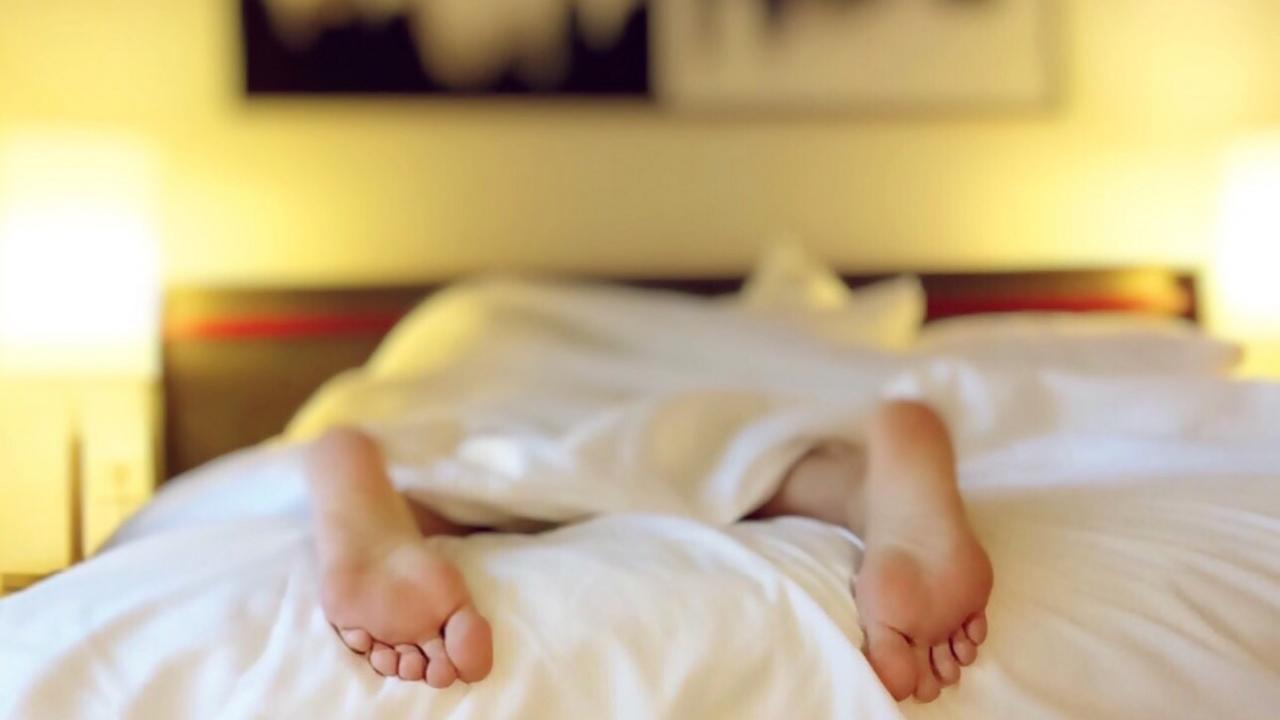Getting Your Sleep Right For Tennis Recovery
Oct 28, 2019
Sleeping like breathing is something few people really think about. It just happens right, you put your head down on the pillow and off you go. Well, I can tell you their many benefits to getting your sleeping habits at optimum levels.
In fact, if you were to go for more than 3 days without sleep you would be in a pretty bad way. Besides breathing (You know what happens if stop doing this right :).
Staying hydrated and getting adequate sleep are the two most important necessities. As a tennis player, if you can get them working at optimum levels, how much better will you perform?
Today we are talking about Sleep. Now let me tell you, I was the kind of guy that would tell himself, I only need 5-6 hours sleep and I’m fine. The funny thing is, every time I would have 8 hours of sleep, I was like a new person. My sleep habits have been a work in progress, especially after 20 odd years of getting up at 5 am, to prepare to train people. Now I am much more aware of what I need and have put a lot of time into working out what works best for me.
I am more productive and efficient; I have the capacity to concentrate better and work with more clarity. Just from adjusting a few things.
To understand more about sleep and the impact it can have, let’s have a look at a few things.
What happens when we sleep?
- Your brain sorts and processes the day’s information
Don’t be fooled into thinking that when you’re asleep your brain has shut off too. Your brain is actually quite busy while you sleep, sorting, and storing information from the day (Technical advice, etc). This process is particularly important for creating long term memories, as your brain consolidates all the information it’s picked up during the day and files it away for later use.
- Hormones flood your body
There are a number of different hormones released during sleep, all with different purposes. Levels increase at night time, making you feel sleepy. While you’re sleeping, your pituitary gland releases growth hormone, which helps your body to grow and repair itself (Very important for any tennis athlete)
- Your sympathetic nervous system chills out
During sleep, your sympathetic nervous system – which controls your fight or flight response – gets a chance to relax. Studies have shown that when we’re deprived of sleep, sympathetic nervous system activity increases, which is also mirrored by an increase in blood pressure. Not great if you playing a match!
- Cortisol levels lower
Levels of cortisol, often called the stress hormone, decreases during the first few hours of sleep before rising to peak soon after you wake up. This helps makes you feel perky when you wake up and switch on your appetite.
- Your immune system releases inflammation-fighting cytokines
While you’re sleeping, your immune system releases a type of small proteins called cytokines. If you’re sick or injured, these cytokines help your body fight inflammation, infection, and trauma. Without enough sleep, your immune system might not be able to function at its best (After every match or training/practice session your body needs to repair damaged tissue)
Sleeping for Tennis
So how much sleep do you need?
This table is a guide for recommended sleep duration for various age brackets.
|
Age |
Recommended |
|
School-aged Children |
9 to 11 hours |
|
Teenagers |
8 to 10 hours |
|
Young Adults |
7 to 9 hours |
|
Adults 26-64 years |
7 to 9 hours |
|
Older Adults |
7 to 8 hours |
The above sleep duration recommendations are based on a report of an expert panel convened by the US-based National Sleep Foundation and published in 2015 in their journal Sleep Health.
Power Naps for Tennis
A great way to utilize sleep for recovery and physical gains is to have what we call a "power nap”. Napping for 15-20 minutes at some point through the day (generally when you feel tired or fatigued), will help recharge your energy and place you in a better state to exercise and concentrate. To become efficient at this, do not stimulate yourself (Watching TV or playing video games) before or whilst trying to get to sleep. You want to get to sleep as quickly as possible and wake after having no more than 20min sleep. Longer than this you can wake up feeling slow and groggy (after 20min your nervous system starts to unwind).
Sleep stages
During sleep you usually go through 5 sleep cycles/stages- Stages 1-2 are light sleep, 3-4 deep sleep, and the fifth stage is REM sleep (The dream state).
It is important that we pass through these phases as each one plays a role.
What I have worked out, is that there are many different levels of sleep quality. As an athlete, players need to get there sleep routines as close to optimal as possible, that means;
- Sleep duration (see above)
- Sleep quality (Good quality sleep, spending enough time in each sleep phase)
- Sleep pattern (Time going to sleep and time waking up)
Working on and getting these 3 areas right will help you recover more effectively, concentrate better, and have more energy throughout the day.
Here are some tips to help you out;
- Sleep Duration – Follow the chart above for your required sleep duration. Aim to hit your sleep duration target at least 5 times per week. Set some goals around it.
- Sleep quality – Avoid anything that is going to stimulate your mind before bed (watching television, looking on social media, working on the computer). Have at least 30min of no stimulation before bed. Make sure you go to the toilet before bed, it will stop you waking or feeling restless through the night.
- Sleep pattern – Have your bedtimes set and be consistent with them. Build a routine around your bedtime (Stretch, shower, reading, sleep).
There are some basic tips to help you out. Most people do not even achieve these on a daily basis. I really encourage you to work on these areas. If you are getting ample quality sleep and are wanting to look at options to increase the quality and duration, here are some options that I practice;
- Non-caffeinated herbal tea – I use various sleep blends; I like to mix it up.
- Stretching and breathing. 10min (1min isometric holds) stretching, focusing on deep breathing techniques.
- Prayer and meditation. Most nights I spend 5-10min praying and meditating before bed. During this time, I like to give gratitude for the day and then let go of the day. I use it as a time to debrief, let go and be ready for the next day.
I hope some of this information is helpful. For young players it is important to get this right at a young age, once they have their routine set and are educated on the benefits of having good quality sleep, they will be more conscious to maintain it moving forward.
(Special mention to the Queensland Government for their information on sleep)


